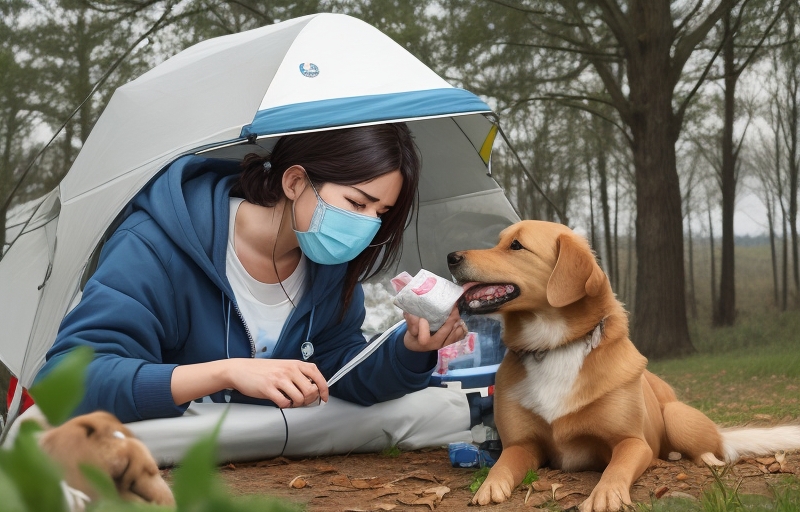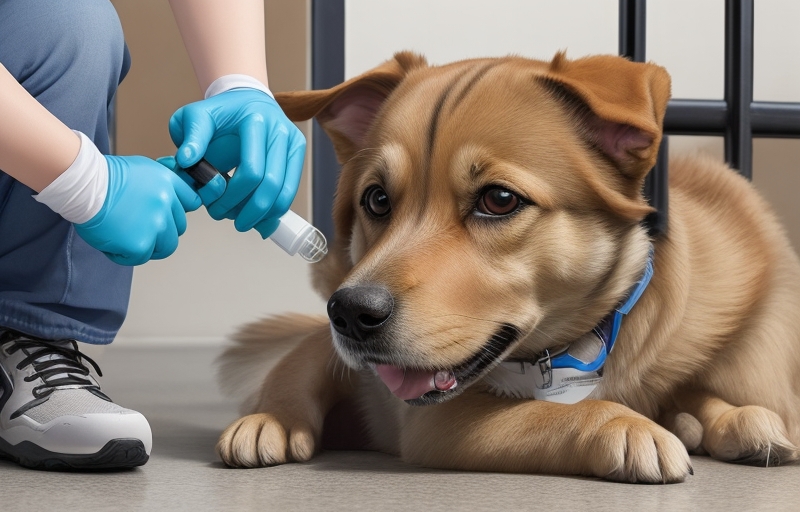Explore the intricacies of whether dogs can contract the common cold, Understanding Canine Respiratory Infections unraveling the reasons, detailed symptoms, diverse treatment options, and a comprehensive guide to preventive measures. Learn how to fortify your furry friend’s health and happiness.
Introduction:
Our four-legged companions, while resilient and loyal, are not immune to respiratory infections. Pet owners often wonder if dogs can catch the common cold, paralleling human experiences. In this comprehensive guide, we will delve into the nuanced reasons behind dogs contracting respiratory infections, meticulously detail the symptoms, explore an array of treatment options, and equip you with preventive measures to ensure the optimal health of your beloved canine companion.
Can Dogs Catch the Common Cold?
Indeed, dogs can be susceptible to respiratory infections that share some characteristics with the common cold in humans. It’s crucial to note, however, that the viruses responsible for the human common cold, such as rhinovirus, typically do not affect dogs. Instead, our canine companions are vulnerable to other viruses like canine adenovirus and canine coronavirus, which can manifest with symptoms akin to those of the common cold.
Understanding Canine Respiratory Infections
Reasons Why Dogs Get Respiratory Infections?

Viral Infections:
Canine respiratory infections are predominantly caused by viruses, including but not limited to canine adenovirus, canine parainfluenza virus, and canine coronavirus.
Bacterial Infections:
Bacteria such as Bordetella bronchiseptica can also precipitate respiratory issues in dogs, commonly referred to as kennel cough.
Weakened Immune System:
Puppies, elderly dogs, or those with underlying health conditions may have compromised immune systems, rendering them more susceptible to respiratory infections.
Environmental Factors:
Exposure to cold, damp environments or crowded places, such as kennels or dog parks, can elevate the risk of respiratory infections.
Symptoms of Respiratory Infections in Dogs:

Identifying the symptoms of respiratory infections in dogs is paramount for early intervention. Look out for the following common signs:
- Coughing: Persistent coughing, often characterized by a honking sound, is a telltale sign.
- Sneezing and Nasal Discharge: Dogs may exhibit nasal discharge, sneezing, or a runny nose.
- Lethargy: A noticeable decrease in energy levels and overall activity.
- Loss of Appetite: Respiratory infections can impact a dog’s sense of smell and taste, leading to a decreased appetite.
- Fever: Elevated body temperature is indicative of an infection.
Treatment Options:

Should your dog display symptoms of a respiratory infection, prompt consultation with a veterinarian is essential for an accurate diagnosis and tailored treatment plan. Treatment options may encompass:
Antibiotics: Prescribed for bacterial infections, antibiotics can be instrumental in addressing the root cause.
Cough Suppressants: Medications designed to alleviate coughing and provide relief to your furry friend.
Fluid Therapy: Ensuring proper hydration is crucial for a swift recovery.
Rest and Isolation: Adequate rest and isolation from other pets can prevent the spread of the infection.
Preventing Canine Respiratory Infections

Vaccination
Keep your dog’s vaccinations up-to-date, including those for distemper, adenovirus, parainfluenza, and influenza.
Avoid Exposure
Limit your dog’s contact with sick dogs and avoid crowded or poorly ventilated areas where the risk of exposure is higher.
Good Hygiene
Regularly clean your dog’s living environment and belongings, and wash your hands after handling other dogs.
Kennel Cough Vaccine
Consider the kennel cough vaccine, especially if your dog frequents places with other dogs, such as boarding facilities or dog parks.
Nutrition
Provide a balanced diet to support your dog’s immune system and overall health.
Regular Vet Check-ups
Schedule routine veterinary check-ups to detect and address potential health issues early on.
When to Seek Veterinary Attention
If your dog exhibits severe symptoms like difficulty breathing, persistent coughing, lethargy, a high fever, or a refusal to eat, seek immediate veterinary attention. Early detection and intervention significantly improve the chances of a positive outcome for dogs with respiratory infections. Always consult with your veterinarian for personalized advice based on your dog’s health and medical history.
Conclusion
In conclusion, a nuanced understanding of the reasons, symptoms, treatment options, and preventive measures for respiratory infections in dogs is imperative for safeguarding your furry friend’s well-being. Regular veterinary check-ups, a balanced diet, and a hygienic living environment collectively contribute to keeping your dog healthy and content.
Read Also: Canine respiratory disease outbreaks
FAQs:
Q1: Can my dog catch a cold from me?
While the viruses causing the common cold in humans are typically not transmitted to dogs, maintaining good hygiene and minimizing close contact is advisable if you are unwell.
Q2: Is kennel cough the same as the common cold in dogs?
Kennel cough, caused by the bacterium Bordetella bronchiseptica, presents with symptoms similar to the common cold but is a distinct respiratory infection requiring specific treatment.
Q3: How long does it take for a dog to recover from a respiratory infection?
Recovery time varies based on the severity of the infection. With proper veterinary care, most dogs show improvement within a week.
Q4: Can I vaccinate my dog against all respiratory infections?
While vaccinations are available for common respiratory infections, consult your veterinarian to determine the most appropriate vaccinations based on your dog’s lifestyle and risk factors.
